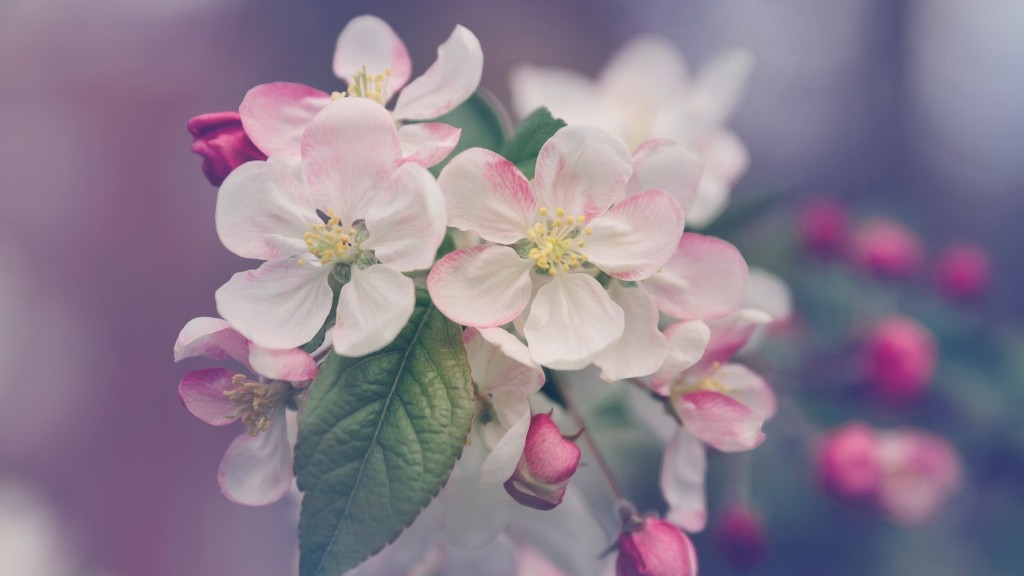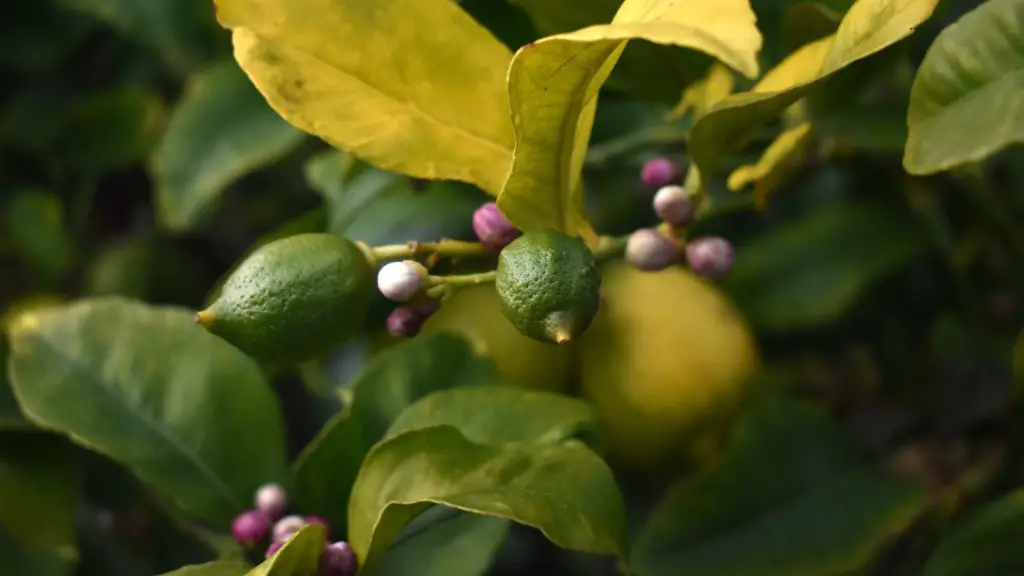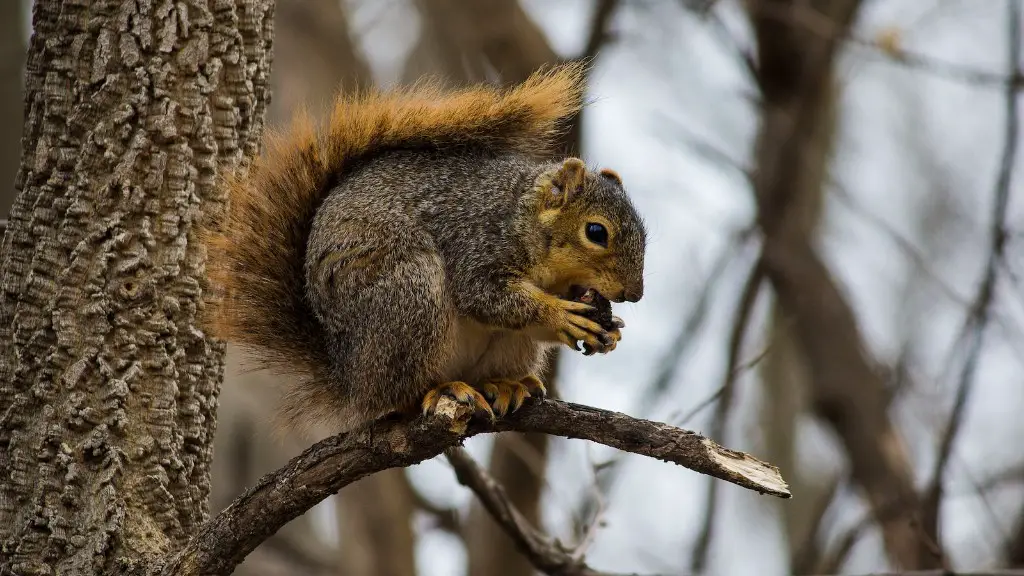Aphids are an extremely common garden pest, and are especially prone to infestations on cherry trees. Not only do they threaten the health of your tree, but the mess of honeydew and black sooty mold their presence can cause is unsightly and worse, can spread to nearby plants. If you want to keep your cherry tree looking and feeling its best, it’s essential to take action against aphids.
Thankfully, there are a number of different ways to kill aphids on a cherry tree. The most important thing is to act quickly – the sooner you tackle the aphid problem, the better. Here are the various methods you can use to treat an aphid infestation:
Method 1: Physical Removal
One of the simplest ways to get rid of aphids is to physically remove them. This can be done by using a strong jet of water to hose them off the tree, or alternatively, you can use a cotton swab and some soapy water to wipe them away. To really make sure the job is done right, use a magnifying glass to examine the trunk and branches of the tree for any hidden clusters of aphids.
Even though this method may sound easy and straightforward, it is rarely completely effective, and you’ll likely need to combine it with one of the other options. That said, it’s still worthwhile to give it a go before reaching for any chemical treatments.
Method 2: Natural predators
Aphids are naturally preyed upon by a variety of species, including ladybugs, lacewings, hoverflies and predatory mites. Making an effort to cultivate a habitat for these beneficial critters can help keep aphid populations under control. Ladybugs, in particular, can be purchased cheaply and released directly onto the cherry tree.
In some cases, you might be able to buy predatory mites, which are particularly useful against heavy infestations of aphids on a cherry tree. This can be particularly effective if your tree is in a greenhouse or protected environment.
Method 3: Organic Insecticides
If the previous methods have failed to get rid of your aphid problem, natural insecticides may be the way to go. There are a number of organic compounds available that can be safely used on edible fruit trees like cherry. Neem oil is one option, but it can be difficult to find in some areas. Horticultural sprays containing pyrethrins are another effective solution, and can be found in many garden centers and online.
When using any kind of insecticide, it’s important to read and follow the directions carefully to ensure it does not harm the tree’s branches or leaves. It’s also a good idea to test it out on a small part of the tree first, to make sure that it doesn’t cause any damage.
Method 4: Chemical Insecticides
As a last resort, chemical insecticides may be necessary to rid yourself of your aphid problem. These products can be highly effective, but they must be used with care and caution. Many of these insecticides are toxic and can harm pets and humans, so make sure you get the right advice before you use them.
It’s also important to understand the environmental consequences of using chemical insecticides. They can have harmful effects on pollinators and other insects, as well as on groundwater and surface water, so if you decide to use them, make sure you do so responsibly.
Preventing Aphids on Cherry Trees
The best way to get rid of aphids on cherry trees is to prevent them in the first place. The most effective method is to provide your tree with adequate nutrition – regularly fertilizing the soil will help promote healthy growth and discourage aphids. Additionally, keeping an eye out for symptoms of an infestation and taking swift action if they arise will give you the best chance of halting any outbreak before it becomes serious.
It’s also important to maintain good sanitation around your cherry tree. Pruning off any dead branches or leaves, and regularly sweeping away any debris will help minimize the chances of an aphid infestation. This can be particularly important if you already have an infestation, as it will prevent the aphids from spreading to other parts of the garden.
Other Considerations
Aphids are a common problem on cherry trees, but there are a number of other pests that may also be a cause for concern. Make sure to do regular inspections of the tree and look out for symptoms of any other problems, as other pests like caterpillars, scale insects and spider mites may also be present. If you do spot any of these, they will need to be dealt with separately, as each one requires different treatments.
It’s also worth noting that natural predators can provide some protection against a range of different pests. Introducing beneficial insects to your garden is a great way to keep the overall pest population under control, and can make it much easier to manage any particularly bad outbreaks.
Careful Monitoring
It’s important to note that even if an infestation is brought under control, it’s still essential to keep an eye out for any signs of further recurrence. Aphids can be relentless, so don’t be tempted to be complacent. Regularly inspect your cherry tree, and you’ll be in a much better position to take swift action and avoid any further damage.
No Single Solution
It’s important to understand that there’s no single, one-size-fits-all solution to an aphid infestation. All plants and trees are different, and the best course of action will vary from case to case. Combining several different methods is almost always necessary, so it’s essential to be patient and to take the time to find the strategy that works best for you and your cherry tree.
The Benefits of Plant Health
Finally, it’s worth bearing in mind that even if you are successful at treating an aphid infestation, it’s not the end of the story. Follow-up steps should be taken to ensure that your cherry tree is kept healthy and thriving. Regular fertilizing and monitoring of nutrient levels in the soil will help you keep your tree strong and resistant to stress and pests.
The benefits of plant health are well-documented, and the extra effort required to keep your tree in optimum condition will be well worth it. Not only will your tree look better, but it will also produce better fruits, and be more resistant to future episodes of pest infestation.




